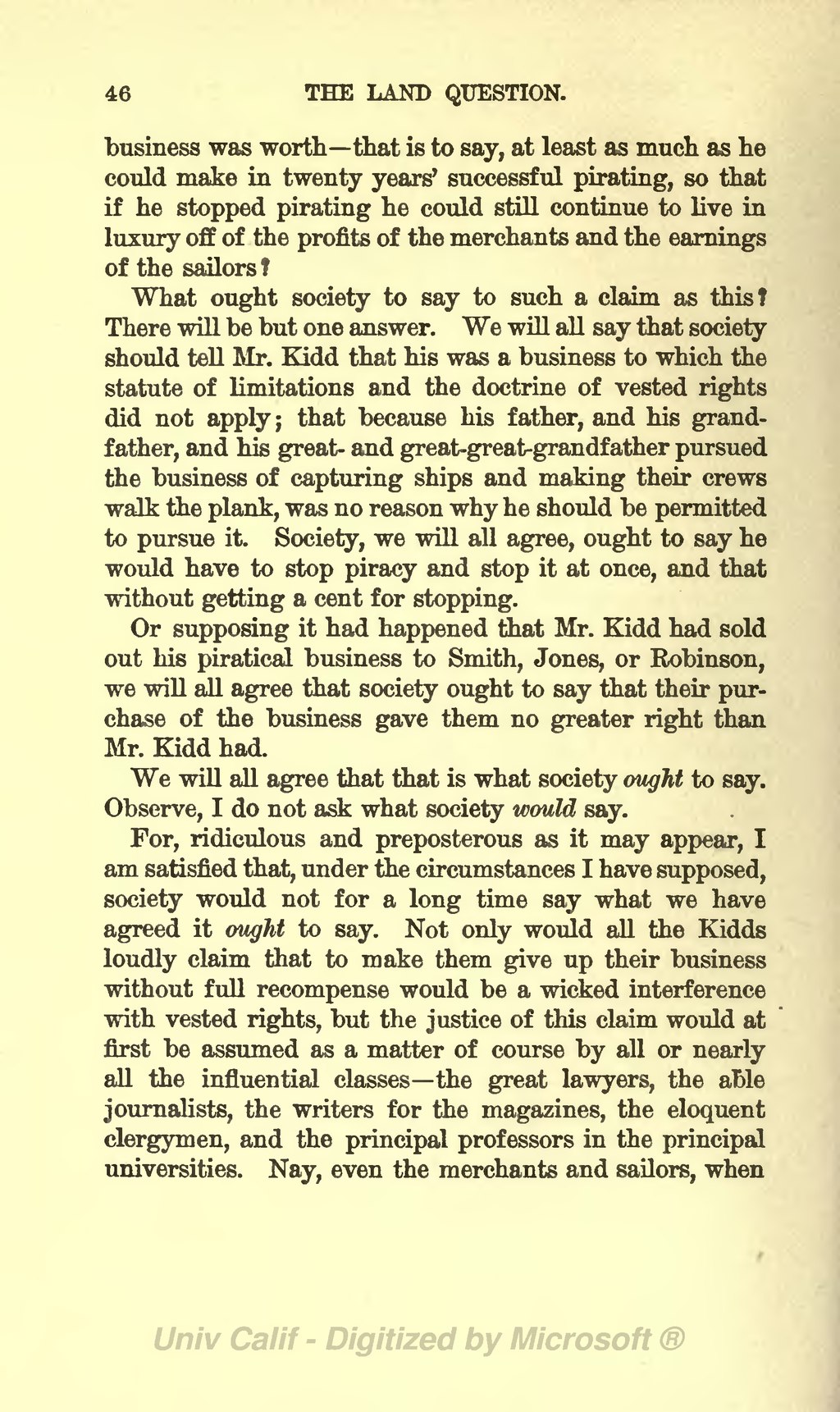46 THE LAND QUESTION.
business was worth that is to say, at least as much as he could make in twenty years' successful pirating, so that if he stopped pirating he could still continue to live in luxury off of the profits of the merchants and the earnings of the sailors t
What ought society to say to such a claim as this? There will be but one answer. We will all say that society should tell Mr. Kidd that his was a business to which the statute of limitations and the doctrine of vested rights did not apply; that because his father, and his grand- father, and his great- and great-great-grandfather pursued the business of capturing ships and making their crews walk the plank, was no reason why he should be permitted to pursue it. Society, we will all agree, ought to say he would have to stop piracy and stop it at once, and that without getting a cent for stopping.
Or supposing it had happened that Mr. Kidd had sold out his piratical business to Smith, Jones, or Eobinson, we will all agree that society ought to say that their pur- chase of the business gave them no greater right than Mr. Kidd had.
We will all agree that that is what society ought to say. Observe, I do not ask what society would say.
For, ridiculous and preposterous as it may appear, I am satisfied that, under the circumstances I have supposed, society would not for a long time say what we have agreed it ought to say. Not only would all the Kidds loudly claim that to make them give up their business without full recompense would be a wicked interference with vested rights, but the justice of this claim would at first be assumed as a matter of course by all or nearly all the influential classes the great lawyers, the able journalists, the writers for the magazines, the eloquent clergymen, and the principal professors in the principal universities. Nay, even the merchants and sailors, when
�� �
